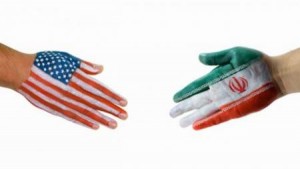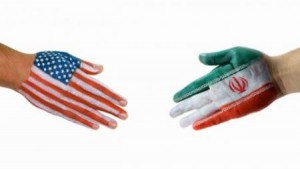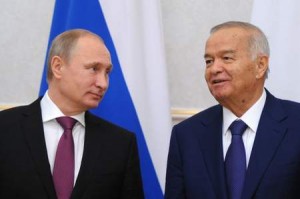- Tehran’s position on testing ballistic missiles could present a golden opportunity for Republicans and Democrats in America to push for new sanctions
Gulf News
Shahir Shahid
 Iran launched its domestic missile programme in the late 1980s during its war with Iraq. At the time, Iran was under stringent arms sanctions, following the seizure of the American embassy in Tehran by radical Muslim students, the country’s aggressive revolutionary nature, and the promotion of the doctrine of “export of the revolution”. No matter where Iran sought to purchase weapons, it was denied.
Iran launched its domestic missile programme in the late 1980s during its war with Iraq. At the time, Iran was under stringent arms sanctions, following the seizure of the American embassy in Tehran by radical Muslim students, the country’s aggressive revolutionary nature, and the promotion of the doctrine of “export of the revolution”. No matter where Iran sought to purchase weapons, it was denied.
Meanwhile, Iran’s air force, which inherited the equipment and structure of the former Imperial Iranian Air Force, saw its role as an effective part of Iran’s armed forces during the war begin to diminish. Despite initial successes against Iraq, this decline resulted from the loss of its best pilots and aircraft and its heavy dependence on the West, particularly the United States. Because of continuous shortages of spare parts for the Air Force, and the realisation among Iranians that they could not have an effective air force, a decision was made to develop a local aerospace industry.
To underscore the significance of the missile programme to Iran, Iranian Foreign Minister Mohammad Javad Zarif, in a tweet in March, contended that Saddam Hussain may have not attacked Iran if Iran had missiles.
Iran’s missile programme was to deter three perceived major threats. The first was the US. During the tenure of president George W. Bush, as he wrote in his memoirs, he ordered the Pentagon to plan an attack on Iran’s nuclear facilities. The second threat was Saudi Arabia, Iran’s fierce rival in the region, which has now overtaken Russia in terms of military spending, becoming the world’s third-largest after the US and China. The final threat is Israel, which possesses an undeclared yet large atomic arsenal.
Following Iran’s March 8 long-range ballistic missile test, the US asserted that “these launches are prohibited” under United Nations Security Council Resolution 2231, adopted on July 20, 2015, which endorsed the nuclear deal between Iran and the world’s six powers (known as JCPOA or Joint Comprehensive Plan of Action) although it may not be considered as a violation. But based on their own position, the US administration imposed several mild, new sanctions on Iran, symbolically reminding them that the US government will not stand by in silence if Iran carries out further ballistic missile tests. In addition, some members of US Congress have begun to seek the passage of new legislation, introduced in the Senate on March 17, to impose further sanctions on Iran as a result of the missile tests.
This current trend in US-Iran relations may not appear serious at this point, but a closer look at the situation reveals that, for three reasons, a crisis deeper than the nuclear issue is underway.
First, Iran will under no circumstances stop testing ballistic missiles. The missile programme is by its very nature considerably more important to the establishment than the enrichment of uranium that was previously at the core of the dispute between Iran and the US. In the latter case, despite paralysing sanctions, Iran never gave up its uranium enrichment programme until the Americans accepted it, albeit at a limited level.
A conversation with any high-ranking military officer or politician will lead to the conclusion that the only reason Israel and the US were deterred from attacking Iran’s nuclear facilities was because of Iran’s missile capabilities.
On April 7, US Secretary of State John Kerry said that the US and its regional allies were “prepared to work on a new arrangement to find a peaceful solution” to the dispute over Iranian ballistic missile tests. “There would be no JCPOA for defence issues,” Zarif responded. He added, “Secretary Kerry and the US State Department know well that Iran’s missile and defence capabilities are not open to negotiation.”
Second, from the US side, the climate is strongly against Iran’s ballistic missile activities. Even the Obama administration took the risk of jeopardising the nuclear agreement by imposing soft sanctions on Iran pursuant to their March test-firing of two ballistic missiles.
The Obama administration’s move was risky because following the conclusion of the JCPOA last July, in a letter to Iran’s President Hassan Rouhani, Iran’s Supreme Leader, Ayatollah Ali Khamenei, wrote that any sanctions placed on Iran for any reason would violate the agreement and render it null and void. Of course Iran did not show any reaction except for a hard criticism of the US move. However, if new sanctions are structured in such a way that they would take a toll on Iran’s economy, there is little doubt that the JCPOA will be in danger.
Will the US take that route? The reality is that there was a head-on clash between Obama and the Republican-dominated Congress over the agreement with Iran. Obama barely escaped the Republicans’ plan to scuttle the deal with Iran. Iran’s resolute position on testing ballistic missile could present a golden opportunity for the Republicans and pro-Israel Democrats to push for new sanctions. As Iran continues testing ballistic missiles, sanctions will likely broaden to the point where the sanctions-easing process could be undone.
The best-case-scenario for Iran is under Obama. Obama does not want the agreement with Iran to fail, as the deal represents his landmark legacy. So him resisting Congressional pressure is clearly predictable. But the question is whether the US establishment will idly sit by as a spectator and let Iran expand its ballistic missile programme considering the high likelihood that the next president will be either the pro-Israel Hillary Clinton or a Republican.
The third reason is that there is a politically powerful current in Iran that does not shy away from any opportunity to try to reverse the current situation to the pre-JCPOA era and embrace hostile relations with the West, particularly the US. The proponents of this school of thought dream of the failure of the JCPOA. On a daily basis, this faction relentlessly attacks Rouhani and his team over accepting what they call “the humiliating nuclear agreement”.
The hardliner Saeed Jalili, Iran’s former chief negotiator, in a speech on April 11, said that he would not have signed nuclear deal if he were president.
Some observers in Iran maintain that the hardliners’ provocative acts as well as attacks on Rouhani are aimed at imposing pressure on Ayatollah Khamenei to change course towards Barjam (a Persian word for the JCPOA).
In this respect, one may question why the missiles, capable of reaching Iran’s arch-enemy Israel, were marked with a statement in Hebrew reading “Israel must be wiped off the Earth”. Being in hostile relations with Israel is one thing — but what did this open provocation mean?




